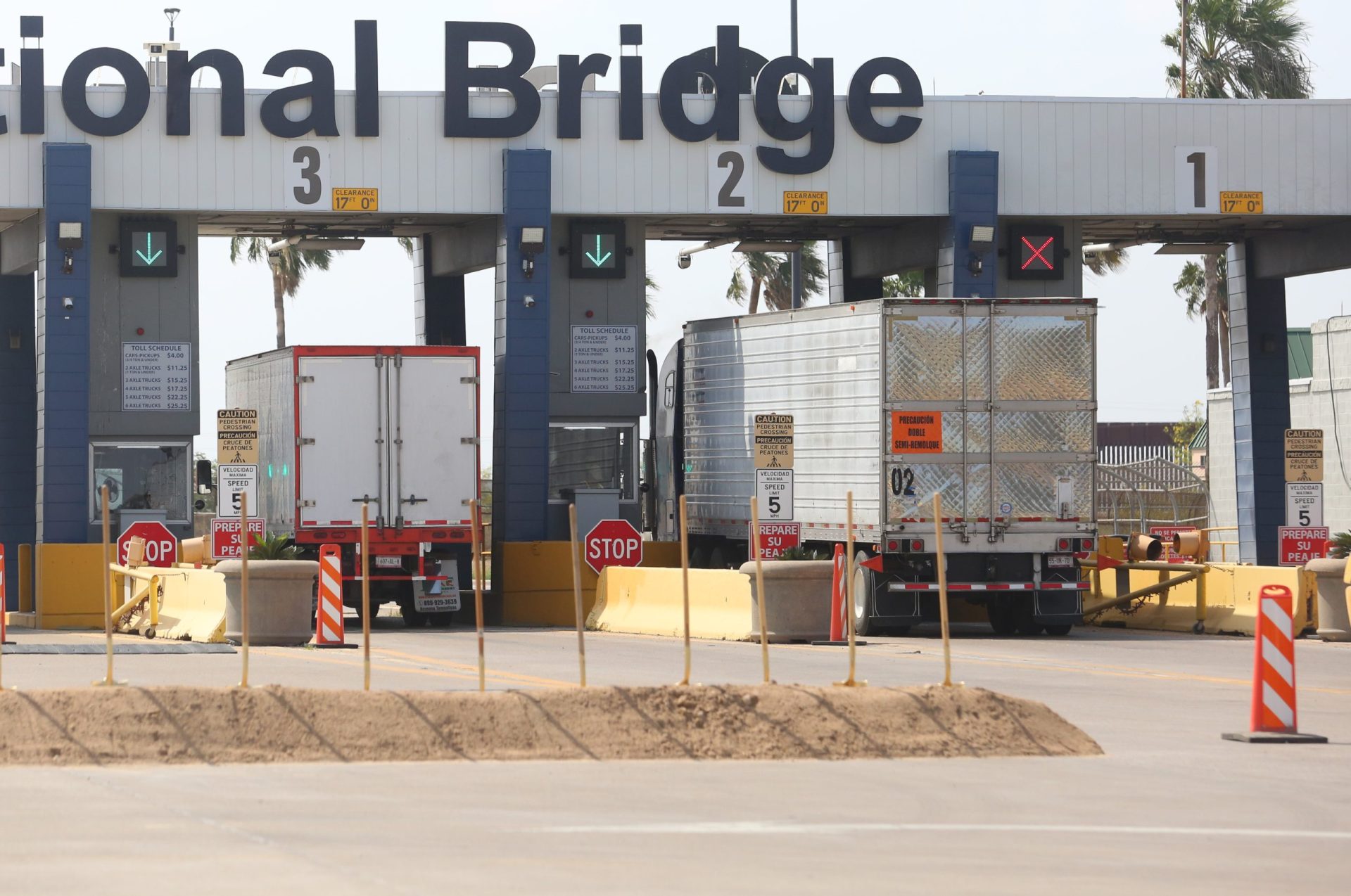Among President-elect Donald Trump’s major campaign promises was a vow to impose steep import tariffs on America’s three largest trading partners: Canada, China and Mexico.
Trump has repeatedly said he intends to impose 25% tariffs on imports from Mexico, the top U.S. trading partner, as well as on Canada, the second biggest, immediately upon taking office Jan. 20. The president-elect said it’s necessary to get Mexico to stem the flow of illegal migration and illegal drugs into the United States, and force U.S. companies to bring manufacturing operations back to this country.
Among the critics of the plan are hundreds of economists, who argue tariffs will only make goods more expensive for U.S. consumers and reverse the progress made against inflation during the Biden administration.
The U.S. Chamber of Commerce, a historically conservative organization that typically favors Republican policy priorities, nevertheless has come out against Trump’s tariff plan.
John Murphy, the chamber’s senior vice president, on Nov. 26 issued a statement that the president-elect is right to focus on securing the border and stopping the flow of fentanyl into the country, though tariffs such as Trump is proposing would do more harm than good.
“Addressing these problems will require action on the part of the U.S. government, including Congress, as well as the Mexican and Canadian governments,” he said. “The American business community is eager to support solutions to the fentanyl crisis. We are confident that, working together with our North American partners, we can address these urgent issues without the harm to the American people that tariffs would bring.
“If imposed, tariffs themselves would not solve our border problems, and instead would send prices soaring, costing the typical American family more than $1,000, with significant harm to U.S. manufacturers, farmers, and ranchers.”
According to the Americas Society/Council of the Americas, “vehicles, automotive parts, and trucks were the three largest imports from Mexico by value in 2023, as the automotive industry is a key component of Mexico-U.S. trade relationship.”
In response to Trump’s threat, Mexican President Claudia Sheinbaum, in a letter sent before the election, wrote that “it is not with threats or tariffs that the migration phenomenon or drug consumption in the United States will be addressed,” noting that U.S. automakers have maintained manufacturing operations in Mexico for many years.
Ford opened its first factory in Mexico in 1925, GM in 1935.
“Cooperation and reciprocal understanding are required to address these great challenges,” Sheinbaum wrote. “To one tariff, another will come in response and so on until we put common businesses at risk.”
 Tractor trailers cross into Mexico at the Pharr International Bridge on Tuesday, March 7, 2023, in Pharr. (Joel Martinez | jmartinez@themonitor.com)
Tractor trailers cross into Mexico at the Pharr International Bridge on Tuesday, March 7, 2023, in Pharr. (Joel Martinez | jmartinez@themonitor.com)Canadian Prime Minister Justin Trudeau said on Dec. 10 that Americans were “beginning to wake up to the real reality that tariffs on everything from Canada would make life a lot more expensive,” adding that Canada will retaliate with tariffs of its own if Trump follows through with his threat, as reported by Associated Press.
“Let’s not kid ourselves in any way, shape or form, 25 percent tariffs on everything going to the United States would be devastating for the Canadian economy,” Trudeau was quoted saying. “It would also, however, mean real hardship for Americans as well. Americans import 65 percent of their crude oil from Canada, significant amounts of electricity. Just about all the natural gas exported from Canada goes to the United States. They rely on us for steel and aluminum. They rely on us for a range of agriculture imports. All of those things would get more expensive.”
Antonio Garza, Brownsville native, former Cameron County judge and U.S. Ambassador to Mexico, and currently counsel with White & Case in Mexico City, likewise disagreed with Trump’s tariff plan.
“In general, I think tariffs are counterproductive, contractionary in terms of economic growth, and if implemented will lead to inflation,” he said. “The threat of tariffs and the ‘tit for tat’ responses will only lead to investor uncertainty, putting a damper on capital expenditures and, more immediately, currency fluctuations.”
For the border, it would likely mean “less Mexican purchasing power and, if coupled with mass deportation, could make for some challenging times,” Garza said.
“But look, elections are like that,” he said. “They have consequences, and this is what the American people have asked for. It’s not like the president-elect was hiding the ball on his intentions.”
The post ‘Challenging times’: Trump’s tariff plan a target of criticism appeared first on MyRGV.com.
 (2).png)
 1 month ago
86
1 month ago
86








 English (US)
English (US)